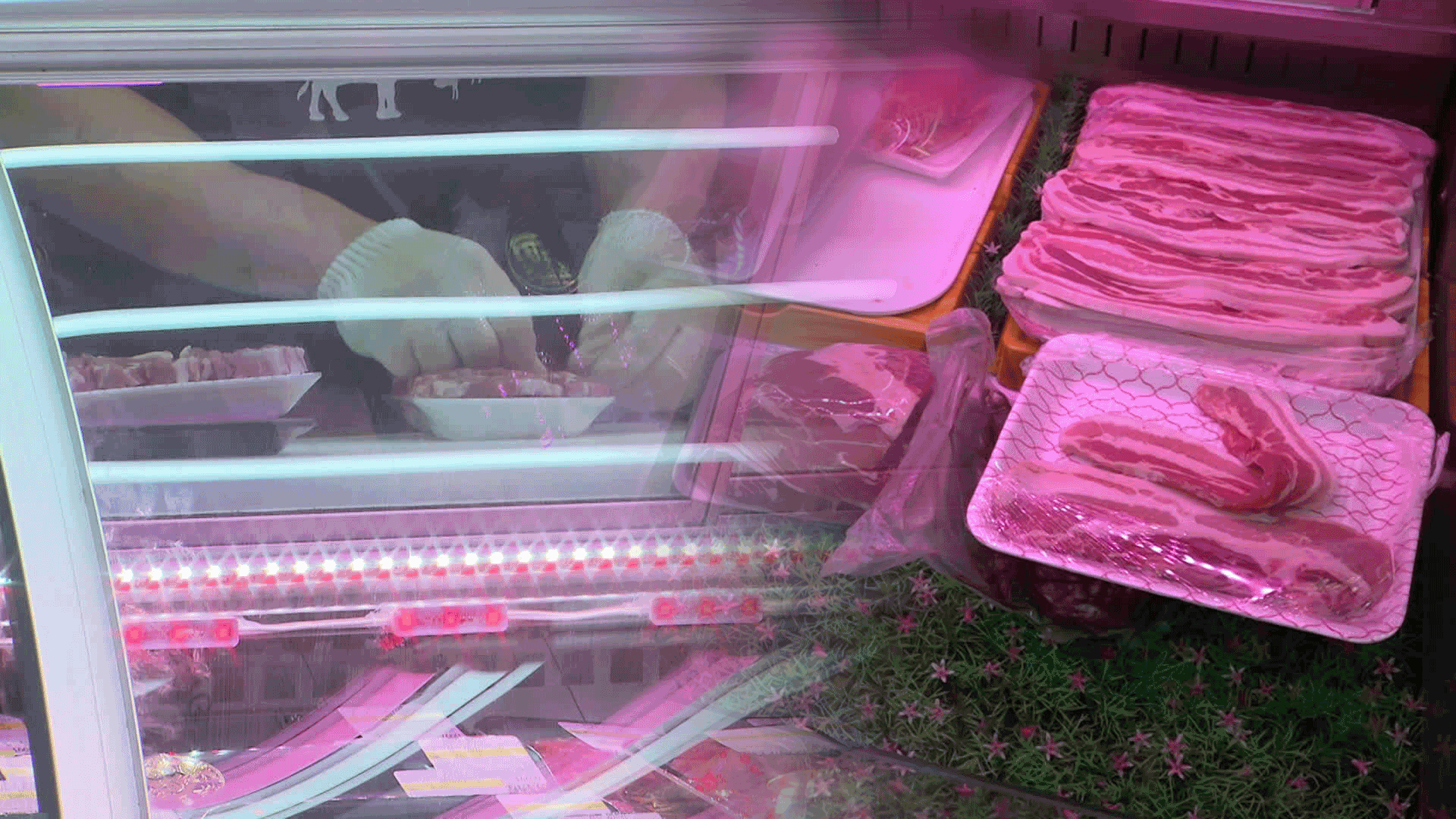[News Today] Downpours impact produce prices
입력 2025.07.23 (15:38)
수정 2025.07.23 (16:14)
읽어주기 기능은 크롬기반의
브라우저에서만 사용하실 수 있습니다.
[LEAD]
The recent torrential rains are poised to exacerbate inflationary pressures on produce prices.
Following an early-season heat wave, now record-breaking downpours have delivered a second blow to farms and livestock.
Seasonal fruits, already inflated in price, are now facing further potential spikes after widespread flood damage.
[REPORT]
A fresh produce market in Seoul where wholesale vendors are clustered.
Watermelons, the leading summer fruit, are on display at the very front but few customers are buying.
It's because it has become too expensive.
"How much is this watermelon? "
"It's 25,000 won."
"The price is still lower than other big markets."
An Young-heon / Seoul resident
A watermelon cost 14,000 won 3-4 weeks ago. Ten days later, it went up to 24,000 won.
The hike is inevitable if the weather is like this.
As of Tuesday, a watermelon costs an average of 31,200 won, or over 22 dollars, up more than 25% on-year.
Prices can go up further due to reduced supply caused by last week's heavy downpours.
Do Gi-hoon / Fruit and vegetable wholesaler
Watermelons are so pricey customers are naturally avoiding them. When the top stalk dries a bit in a few days, I sell at a lower price.
The prices of melons and chives are also expected to run higher this year at least for the time being as 100 hectares each of their growing areas, measuring four times the size of Seoul's Yeouido Park, are believed to have been inundated nationwide.
The government believes rice, though hit hardest by the downpours, won't suffer much in cultivation once water levels subside while changes to livestock prices, resulting from animal deaths, will also be limited.
However as the producer price index for agro-livestock goods such as pork posted sharp gains last month, this can raise pressure on consumer inflation in one to three months' time.
As abnormal weather patterns such as extreme heat and heavy rain continue, there's growing uncertainty in future prices of farm products.
■ 제보하기
▷ 카카오톡 : 'KBS제보' 검색, 채널 추가
▷ 전화 : 02-781-1234, 4444
▷ 이메일 : kbs1234@kbs.co.kr
▷ 유튜브, 네이버, 카카오에서도 KBS뉴스를 구독해주세요!
- [News Today] Downpours impact produce prices
-
- 입력 2025-07-23 15:38:12
- 수정2025-07-23 16:14:03
[LEAD]
The recent torrential rains are poised to exacerbate inflationary pressures on produce prices.
Following an early-season heat wave, now record-breaking downpours have delivered a second blow to farms and livestock.
Seasonal fruits, already inflated in price, are now facing further potential spikes after widespread flood damage.
[REPORT]
A fresh produce market in Seoul where wholesale vendors are clustered.
Watermelons, the leading summer fruit, are on display at the very front but few customers are buying.
It's because it has become too expensive.
"How much is this watermelon? "
"It's 25,000 won."
"The price is still lower than other big markets."
An Young-heon / Seoul resident
A watermelon cost 14,000 won 3-4 weeks ago. Ten days later, it went up to 24,000 won.
The hike is inevitable if the weather is like this.
As of Tuesday, a watermelon costs an average of 31,200 won, or over 22 dollars, up more than 25% on-year.
Prices can go up further due to reduced supply caused by last week's heavy downpours.
Do Gi-hoon / Fruit and vegetable wholesaler
Watermelons are so pricey customers are naturally avoiding them. When the top stalk dries a bit in a few days, I sell at a lower price.
The prices of melons and chives are also expected to run higher this year at least for the time being as 100 hectares each of their growing areas, measuring four times the size of Seoul's Yeouido Park, are believed to have been inundated nationwide.
The government believes rice, though hit hardest by the downpours, won't suffer much in cultivation once water levels subside while changes to livestock prices, resulting from animal deaths, will also be limited.
However as the producer price index for agro-livestock goods such as pork posted sharp gains last month, this can raise pressure on consumer inflation in one to three months' time.
As abnormal weather patterns such as extreme heat and heavy rain continue, there's growing uncertainty in future prices of farm products.
이 기사가 좋으셨다면
-
좋아요
0
-
응원해요
0
-
후속 원해요
0













![[단독] 리튬 테마주로 탈세한 ‘꾼’에 천억 대 세금…국세청, 특별세무조사](/data/layer/904/2025/07/20250723_yoocZj.png)

이 기사에 대한 의견을 남겨주세요.